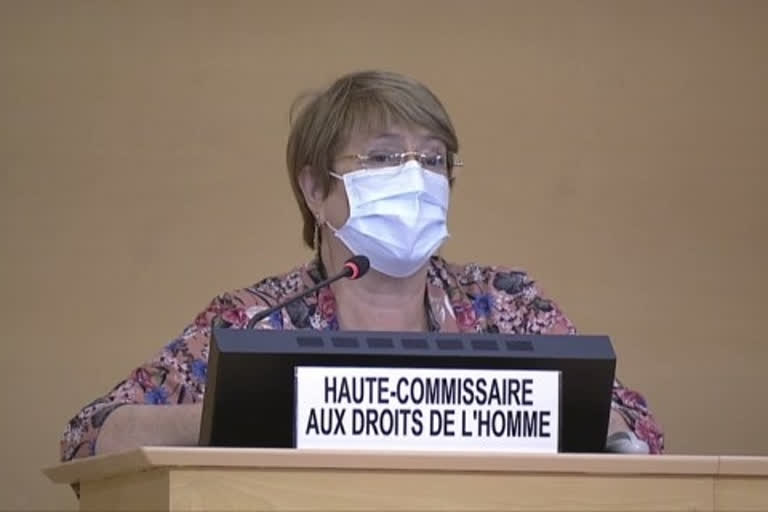United Nations: The UN High Commissioner for Human Rights Michelle Bachelet has urged legislators in the United Kingdom to heed warnings that the proposed new Overseas Operations (Service Personnel and Veterans) Bill, in its current form, risks undermining key human rights obligations that the UK has committed itself to respect.
She expressed concerns that, unless suitably amended, the Bill could lead to shielding military personnel operating abroad from due accountability for acts of torture or other serious international crimes.
The Bill is now reaching its final stages in the legislative process, and will shortly be debated again by the House of Lords, the UK’s upper chamber, where amendments may still be made.
The purpose of the Bill is stated as being “to provide greater certainty for Service personnel and veterans about claims and potential prosecution for historical events that occurred in the complex environment of armed conflict overseas.” It seeks to achieve this, in particular, by introducing new preconditions for the prosecution of alleged offences covered by the Bill, she added.
Read:Iran warns sabotage affects Vienna talks over nuclear deal
In its present form, the proposed legislation raises substantial questions about the UK’s future compliance with its international obligations, particularly under the Convention against Torture and Other Cruel, Inhuman or Degrading Treatment or Punishment (CAT), as well as the 1949 Geneva Conventions. These include obligations to prevent, investigate and prosecute acts such as torture and unlawful killing, and make no distinction as to when the offences were committed.
“As currently drafted, the Bill would make it substantially less likely that UK service members on overseas operations would be held accountable for serious human rights violations amounting to international crimes,” Bachelet said in a statement issued by the UNHR office of the High Commissioner.
Bachelet urged that all international crimes which the United Kingdom is under an international legal obligation to investigate and prosecute be excluded from the proposed restrictions. She welcomed the fact that Schedule 1 of the Bill already excludes numerous sexual offences, including rape, from the scope of the Bill. She urged that all other crimes of equal seriousness and concern be treated in the same way.
“The prohibition of torture in international law is both clear and absolute,” Bachelet said. “Article 2 of the Convention against Torture is unequivocal, stating that ‘No exceptional circumstances whatsoever, whether a state of war or a threat of war, internal political instability or any other public emergency, may be invoked as a justification of torture. "The obligations in the Convention to investigate and prosecute such allegations recognize none of the new distinctions that the Bill would now bring into law.
“The Overseas Operations Bill risks undermining these clear obligations in several ways,” Bachelet said in the statement.
